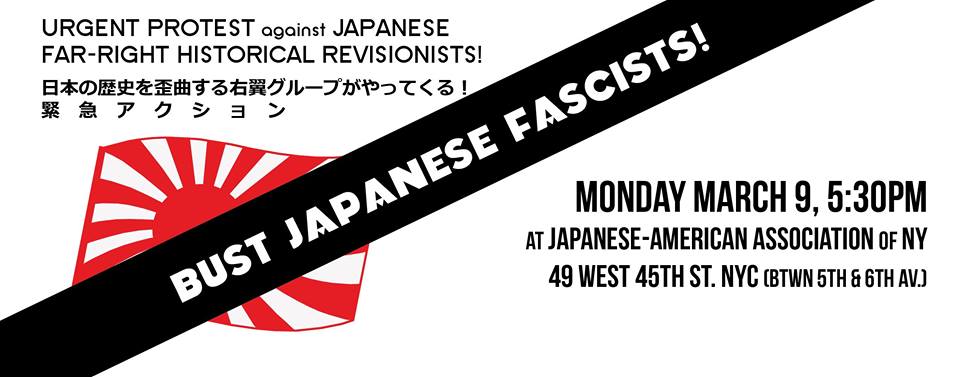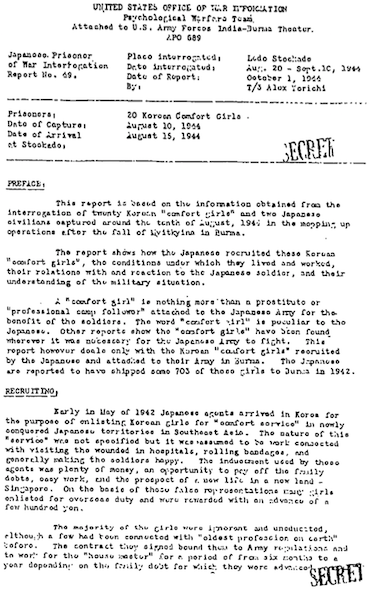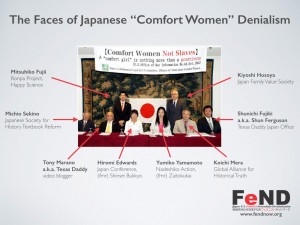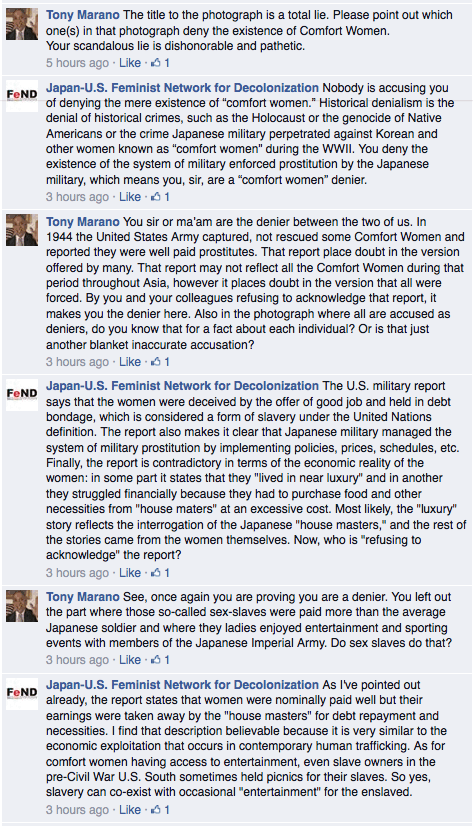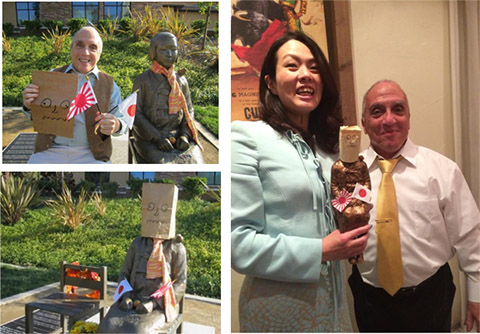Update: VICTORY! Japanese American Association of New York canceled the right-wing historical revisionist event planned for March 9th. If you were planning to join the protest, please still show up to celebrate with the community! Also, please don’t miss the legitimate panel about “comfort women” hosted by Human Rights Now in the afternoon (see below for info).
Anti-nuclear activist group Sloths Against Nuclear State and others are planning to protest an upcoming panel organized by Japanese far-right historical revisionists in New York City. The event–and the protest–is held at Japanese American Association of New York (49 W 45th Street, NYC) on March 9th, 2015 at 5:30pm. The panel is apparently being held in conjunction with the meeting of the United Nations Commission on the Status of Women.
Speakers for the far-right event include:
- Yumiko Yamamoto, the president of “comfort women” denialist group Nadeshiko Action and formerly of notoriously racist Zaitokukai, which routinely held (and still holds) explicitly hateful anti-Korean demonstration in public spaces, including in front of a Korean elementary school.
- Tony Marano, a.k.a. “Texas Daddy,” a video blogger and “comfort women” denier (see our exchanges with him).
- Shiro Takahashi, a mainline conservative education scholar who have been involved with Japan Society for History Textbook Reform which has successfully lobbied to remove mentions of “comfort women” in Japanese history textbooks.
- Mitsuhiko Fujii, the president of “comfort women” denier group Rompa Project, which is considered a front group of the far-right religious group Happy Science (Koufuku no Kagaku).
- Shunichi Fujiki, a.k.a. “Shun Ferguson,” a businessman who recruited Marano and became his “Japanese representative,” orchestrating Marano’s books and lectures in Japan. (See how he used a pseudonym to post hate comments on our blog and got caught because he used the same IP address.)
Also at noon on March 10th, “comfort women” denier group Global Alliance for Historical Truth (GAHT) is holding a press conference at Westin Hotel Grand Central New York (212 East 42nd Street). GAHT has filed multiple lawsuits against the City of Glendale, California for enacting a memorial dedicated to victims and survivors of the “comfort women” system during the WWII. GAHT’s state case against the City was recently dismissed under the State’s anti-SLAPP statute.
GAHT’s press conference is led by Koichi Mera, the president of GAHT-US and a plaintiff in the Glendale case, and is joined by Tony Marano and other usual suspects.
But it’s not all bad: Tokyo-based international human rights group Human Rights Now is also holding a panel on the “comfort women” issue to coincide with the UN Commission meeting. HRN’s panel, titled “Truth and Justice for ‘Comfort Women’,” is scheduled on the same day (March 9th) as the right-wing panel, but it is held at noon as opposed to in the evening so you can go to the HRN panel first and then protest the right-wing panel later in the day.
For more information about the HRN panel, see their website. For more information about the protest against the right-wing panel, please see the facebook page.
Japan-U.S. Feminist Network for Decolonization (FeND) stands in solidarity with our friends and colleagues in New York City confronting the far-right historical revisionists from Japan.

